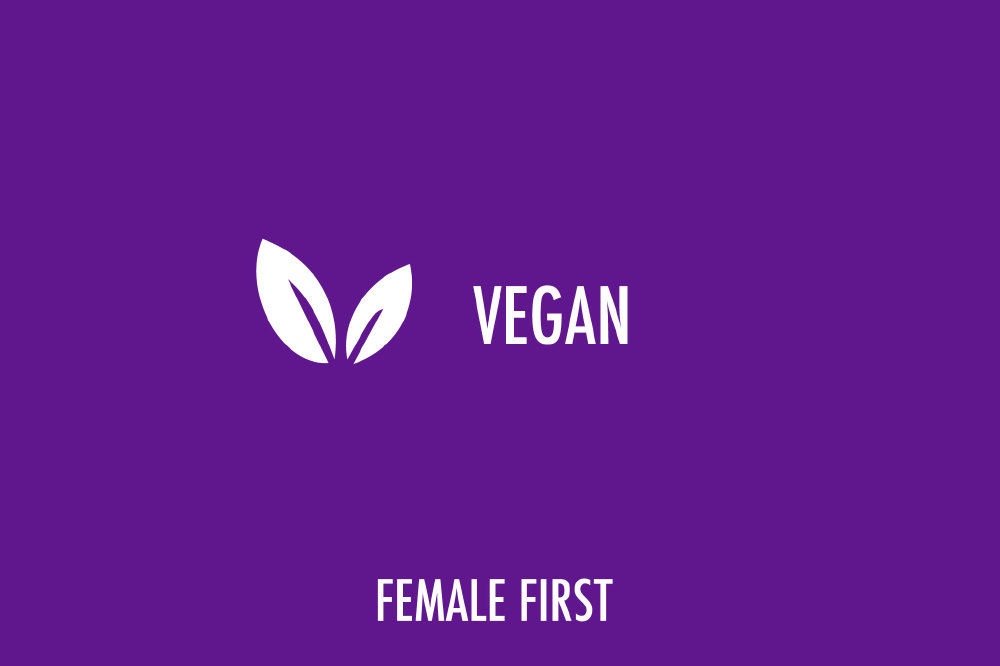Finding a skincare routine to manage eczema can be difficult for everyone with sufferers having to face various challenges and understand their personal triggers of flare ups. However, it can be even harder for vegans who already have to carefully manage a healthy diet which can impact the skin.

Vegan on Female First
Dr Sarah Schenker, leading Nutritionist & Dietician comments: “Healthy skin depends on a well-balanced diet that provides enough of all the nutrients to meet the body’s requirements. Dietary changes that could help manage eczema include adequate intakes of vitamin D. This can be found in oily fish which provides vitamin D and also ensures a good intake of omega 3 fats. Probiotics and prebiotics may also help manage eczema, they can be taken either as a food supplement or from increasing foods sources in the diet, such as live yogurts, wholegrains and green leafy veg.”
However, if you are a vegan who suffers from eczema it can be particularly difficult to ensure you get enough Vitamin D in your diet. Dr Sarah Schenker comments: “Vegans and vegetarians may miss out on getting enough vitamin D (especially during the winter months) and omega 3 fats as there are very few non-animal food sources of either nutrient. Vitamin D is provided by a limited number of vegetarian foods including fortified margarines, some breakfast cereals and some soya drinks and should therefore probably consider taking a supplement. Vegan sources of omega-3 fatty acids include different plant oils such as flaxseed, rapeseed and soya as well as walnuts.” Not all Vitamin D supplements are suitable for vegans, however Holland and Barrett shiitake Mushroom Vitamin D capsules are suitable for vegans and vegetarians and are a natural source of vitamin D contributing towards a normal immune system.
Vitamin D isn’t the only nutrient that is good for managing eczema prone skin, there are plenty more which you should have in your diet for healthy skin. Dr Sarah Schenker comments: “Antioxidant vitamins such as vitamin A, in the form of beta-carotene, vitamin E and vitamin C all have a role in helping to keep the skin healthy, so make sure you get good amounts of these vitamins in your diet by including colourful fruit and veg (vitamin A), citrus fruits and green leafy veg (vitamin C) and foods containing healthy fats such as plant oils, wholegrains and avocados (vitamin E).”
Dr Sarah Schenker shares five ingredients to add to your diet containing these nutrients:
Berries (vitamin C)
Add a few handfuls of frozen berries to yogurt or porridge and keep in the fridge overnight. The berries will ‘melt’ into the yogurt or porridge, swirl through before you eat, no need for sugar.
Peppers (vitamin A and C)
Cut peppers into strips and use to dip into hummus and guacamole.
Avocado (vitamin E)
Use mashed avocado instead of butter in some recipes and add grated carrot to cakes and muffins to keep them moist.
Spinach / Kale (vitamin A, E and C and K)
There are endless variations for replacing or half replacing starchy carbohydrate such as rice and pasta with veg, including kale noodles and butternut squash tagliatelle.
Almonds / Pine Nuts (vitamin E)
Jazz up rice, quinoa or couscous with pomegranate seeds, cranberries, pine nuts and almonds.
Whilst ensuring that your diet allows you enough nutrients for healthy skin, it’s also important to find a vegan friendly emollient to protect your skin. Cetraben have a range of skincare saviours that are vegan friendly and cruelty free that will help manage eczema flare-ups by soothing and hydrating the skin. Cetraben Cream and Lotion (£4.99, Boots) rehydrates and protects the skin from irritants and comes in a handy 50ml travel size. They also have two newly launched products, Cetraben Daily Cleansing Cream (£7.99, Boots) which is specifically formulated for use as a cleansing soap substitute for use in the bath or shower and Cetraben Ointment (£6.99, Boots) which is ideal for very dry, thick skin or when higher levels of hydration are required.

